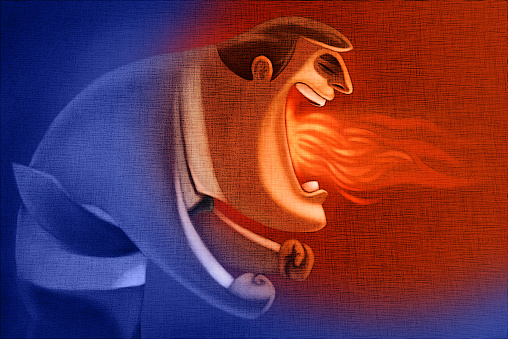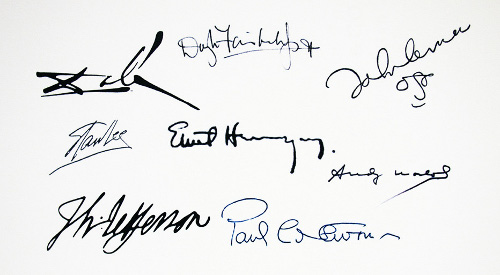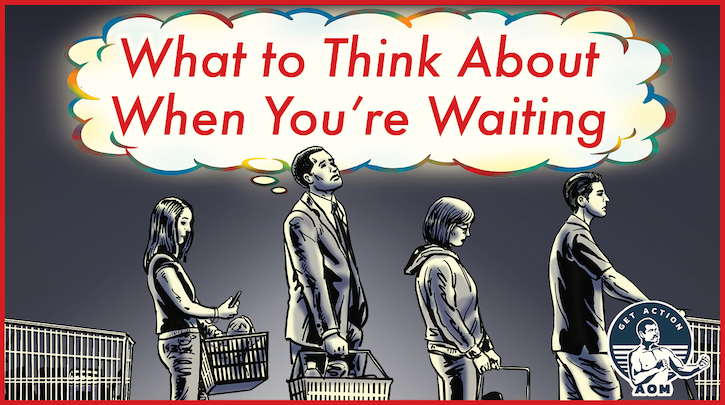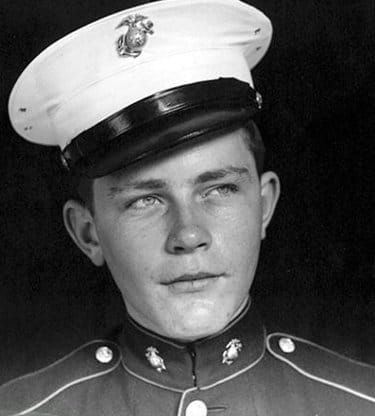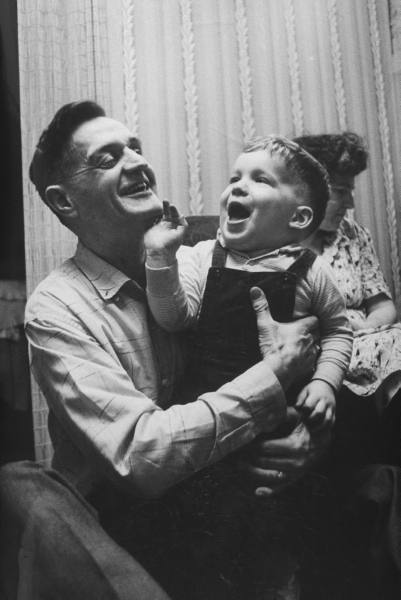
Editor’s note: Father’s Day is this weekend and you may have noticed that here on AoM we’ve been running some father-themed posts. We have a couple more for you, including today’s essay by Joel Schwartzberg. Mr. Schwartzberg is an award-winning essayist whose new book is “The 40-Year-Old Version: Humoirs of a Divorced Dad.” This essay is excerpted from that book.
For a micromoment, my eight year-old son Charlie and I just stared blankly at the hot dog resting beside our feet as if we expected it to suddenly anthropomorphize, brush itself off, and hop agreeably back onto the grill.
We had just spent an hour putting the grill together, screw by tiny screw. Charlie helped me lug it to the small patch of grass outside our apartment, and together we arranged the charcoal into a nice, tight pyramid. Once the coals were coated white, Charlie asked if he could use the heavy tongs to move the hot dogs. I wasn’t sure he was strong enough to keep the long tongs pinched, and these three were all we had. But Charlie was excited about extending his term of responsibility, so I let him try.
“Use two hands,” I said.
He carefully grabbed a frankfurter with the tongs, but as soon as he shifted his feet toward the grill, the pinchers sprung open, and the hot dog dropped onto the damp dirt. No five-minute, five-hour, or five day rule would save this dog. It was history.
There’s a TV commercial for a brand of paper towel in which a Dad and his young son are lounging on a couch behind a coffee table. On the table are two glasses of juice. The father stretches and places his feet on the table. The adorable son mimics his father, placing his own feet on the table. Naturally, the kid knocks over his juice, which spills everywhere.
The kid looks at his Dad with a fearful look so exaggerated it’d make a mime blush. Will he get sent to his room? Yelled at? Viciously beaten?
No. The Dad just smiles and knocks over his own drink. Son is relieved. Cue Mommy, who looks sharply at Dad.
Will Dad be sent to his room? Yelled at? Viciously beaten? We’ll never know. But I have yet to meet a father who’d handle such a moment this way. Certainly not me, having been raised in a home were childish mistakes and other immaturities were the behavior of “retards,” “dummies,” and “shmegeggies.”
I’m above calling my son names – even Yiddish ones – but not always able to resist doling out disappointment, even for tiny mistakes like dropping a hot dog. I felt the words stepping up to the batter’s box in my head.
“Come on!”
“What’s the matter with you?”
“I KNEW that would happen.”
“Charlie…” I started, but my son took my lines and rewrote them.
“I’m sorry. I’m so stupid!” he said, slamming his tiny fists into his thighs. “I’m an idiot! An idiot!”
I painfully recognized both the tone and the words, like a song from my childhood.
When I was 10, my parents bought me an expensive, life-sized ventriloquist’s dummy. I coveted the thing dearly, but once while I was playing with it, the jaw stopped responding to my tugs. It hung perfectly still while I frantically pulled the string. Then, the string broke.
I cried until my eyes were dry. “Idiot,” I said to myself. “Stupid, stupid idiot!”
Desperate to avoid my parents’ disappointment, I rolled up the doll, wrapped it in a plastic bag, and secretly buried it in a dumpster behind the apartment. It was a very undignified way to die, even for a dummy. The doll’s sudden disappearance was a major family mystery for 20 years.
Watching Charlie psychologically pummel himself was like looking through a one-way mirror; I saw him clearly, but also my own ghostly reflection staring back. My mother tells stories of how I used to throw terrible tantrums in my room, tossing clothes, tearing books, and breaking toys in a tearful tsunami that ended only when I exhausted myself. My parents saw it as outward anger. In truth, I was punishing myself; I felt undeserving of all I had.
I so wanted to do for my son what wasn’t done for me – to hug him, to console him, to insert myself between him and his hate. But even that impulse felt unnatural, as if I were trying to control an involuntary organ. I wanted to say something healing, but it’s futile to tell a kid to stop feeling what he’s feeling, no matter how much my own mother tried.
So I impulsively picked up the hot dog and chucked it deep into a neighboring yard.
My son looked at me.
“That should make Luna happy,” I said, in reference to the feathery white cat who routinely patrols the back alley of my apartment.
Charlie nodded.
I offered him the tongs. “Another try?”
After a moment, he took them from my hands.
I don’t remember if Charlie’s next hot dog survived its short journey or not. It didn’t matter. We simply comforted each other as best we knew how, and moved past what had fallen between us.
If you enjoyed this essay, be sure to check out Joel’s new book, The 40 Year Old Version: Humoirs of a Divorced Dad


